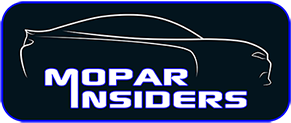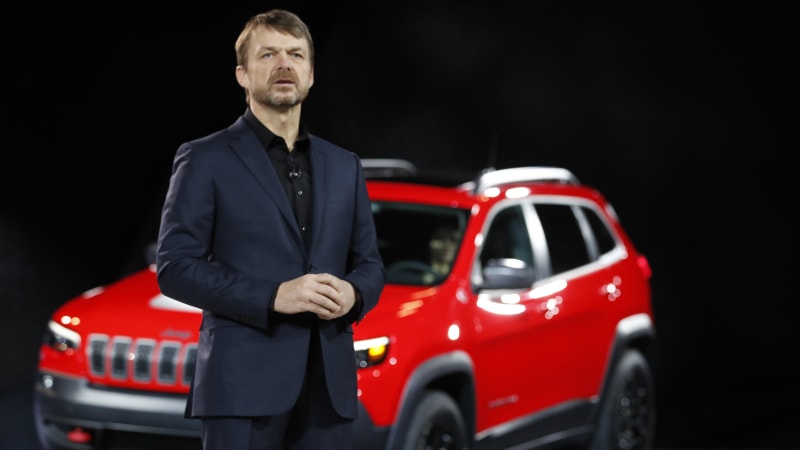Seen this coming...
FCA's European boss quits after losing out as Marchionne's replacement
New CEO Manley inherits the FCA game plan outlined last month
MILAN — Fiat Chrysler's European boss has quit, adding to the problems facing new CEO Mike Manley, who must deliver on promises to boost production of SUVs and catch up with rivals in electric cars.
Jeep division head Manley was named on Saturday to succeed Chief Executive Sergio Marchionne, one of the auto industry's most tenacious and respected leaders, who fell seriously ill after suffering complications following surgery.
It emerged on Monday that Alfredo Altavilla, head of Fiat Chrysler's business in the Europe, Middle East Africa had resigned, according to a source with knowledge of the matter. He had been a rival for the top job along with Manley and Chief Financial Officer Richard Palmer.
It's another complication to new CEO Manley's task of executing his predecessor's plan to keep the world's seventh-largest carmaker competitive in the absence of a merger.
Marchionne had been due to step down next April, so the market reaction was limited on Monday. The shares initially fell more than 5 percent, but then pared some losses and were down 2.4 percent by 0930 GMT.
"The downside may be modest, at least in the next 12 months. But long-term concerns will build — Marchionne ran FCA in a command and control style, with constant firefighting measures," said Bernstein analyst Max Warburton.
Fiat Chrysler Automobiles (FCA) said British-born Manley would pursue the strategy that Marchionne outlined last month.
FCA has pledged to increase production of sport utility vehicles and invest in electric and hybrid cars to double operating profit by 2022. It also unveiled bold targets for Jeep, which has become FCA's ticket to creating a high-margin brand with global appeal.
Reviving struggling brands
Analysts said that choosing Manley, 54, under whose watch Jeep's sales surged fourfold, sent a clear message that FCA was staying on course and would keep the Jeep brand at the heart of its growth plan.
"Manley knows that his primary focus is on execution and that, already, he has a strategy into which his team has bought," said George Galliers, an analyst at Evercore ISI.
"There is no reason the 2022 plan cannot be executed."
Under Manley, the company is expected to sharpen its focus on revamping individual brands, including ailing Fiat in Europe, Chrysler in the United States and Alfa Romeo, which has yet to turn a profit despite multibillion-euro investments.
Marchionne, widely credited with rescuing both Fiat and Chrysler from the brink of bankruptcy, had focused on fixing FCA's finances first, notably erasing all debt.
He was a gift to investors, including Italy's Agnelli family, through 14 years of canny dealmaking, growing Fiat's value 11 times, helped by spinoffs of tractor maker CNH Industrial NV and Ferrari NV. The Agnellis still have a controlling interest in all three companies.
But his track record at fixing some of FCA's brands was mixed, with investments and product launches repeatedly delayed.
Profitability in Europe is only gradually recovering, FCA has yet to make significant inroads in China, and the company relies on North America for three-fourths of profits just as that market is expected to come off its peaks.
Questions for Ferrari
Marchionne had advocated industry mergers to share the cost of building electric, hybrid and self-driving cars, but gave up the quest when his preferred target, General Motors Co, rejected his advances.
FCA said on Saturday that Manley would execute the new strategy to ensure a "strong and independent" future.
Without a partner in sight, Manley needs to show FCA can keep churning out profits on its own, even as emissions rules tighten, SUV competition intensifies and worries over potential U.S. emissions fines abound.
"Sergio's deal-making and political skills will be missed as FCA faces trade/tariff uncertainty ... and a constantly shifting landscape in Latin America," Barclays said in a note.
While FCA had a succession plan, the future appears less clear at Ferrari, the luxury brand that Marchionne was due to lead until 2021.
Ferrari announced some midterm targets this year — pledging to double core earnings and churn out hybrids and an SUV — but a detailed strategy was due in September.
New CEO Louis Camilleri "inherits an absurd valuation, a product plan that's far from settled internally and 2021 financial targets that Sergio scribbled on a napkin and that may be difficult to deliver," Bernstein's Warburton added.
Ferrari shares were down 3.6 percent.
Marchionne made some bold choices in recent years, notably raising production beyond a self-imposed cap, but was always careful to not dilute the brand's exclusivity.
Analysts questioned whether Camilleri would be able to do the same and grow Ferrari beyond what it is today while keeping dealers, racing fans, owners and collectors on board.
"(Ferrari) will always be like a fine race car. Marchionne increasingly had it tuned to perfection," Galliers said. "It has to be seen if it can remain so without him."
Reporting by Agnieszka Flak
https://www.autoblog.com/2018/07/23/fiat-chrysler-ferrari-new-ceos-marchionne-what-next/
